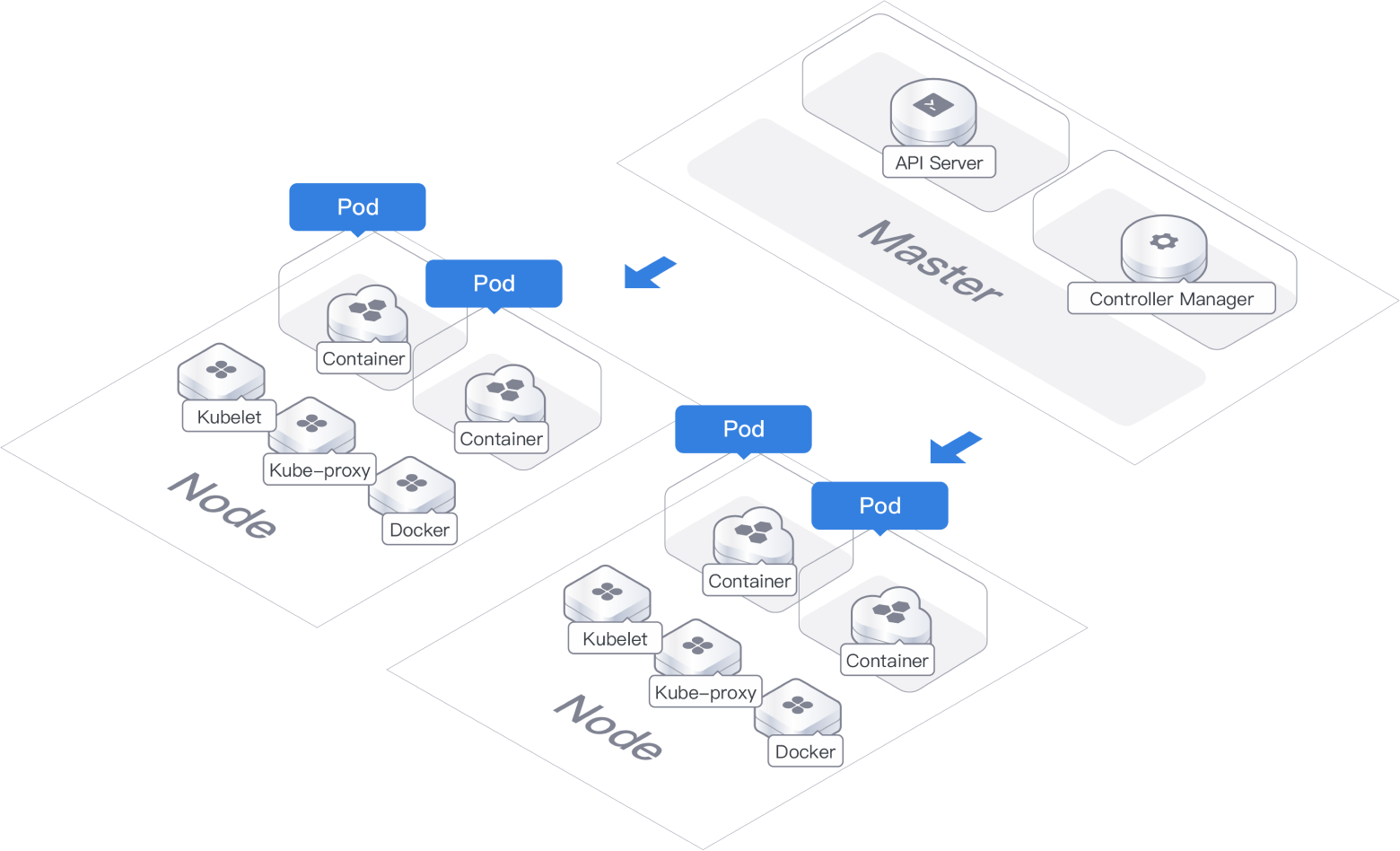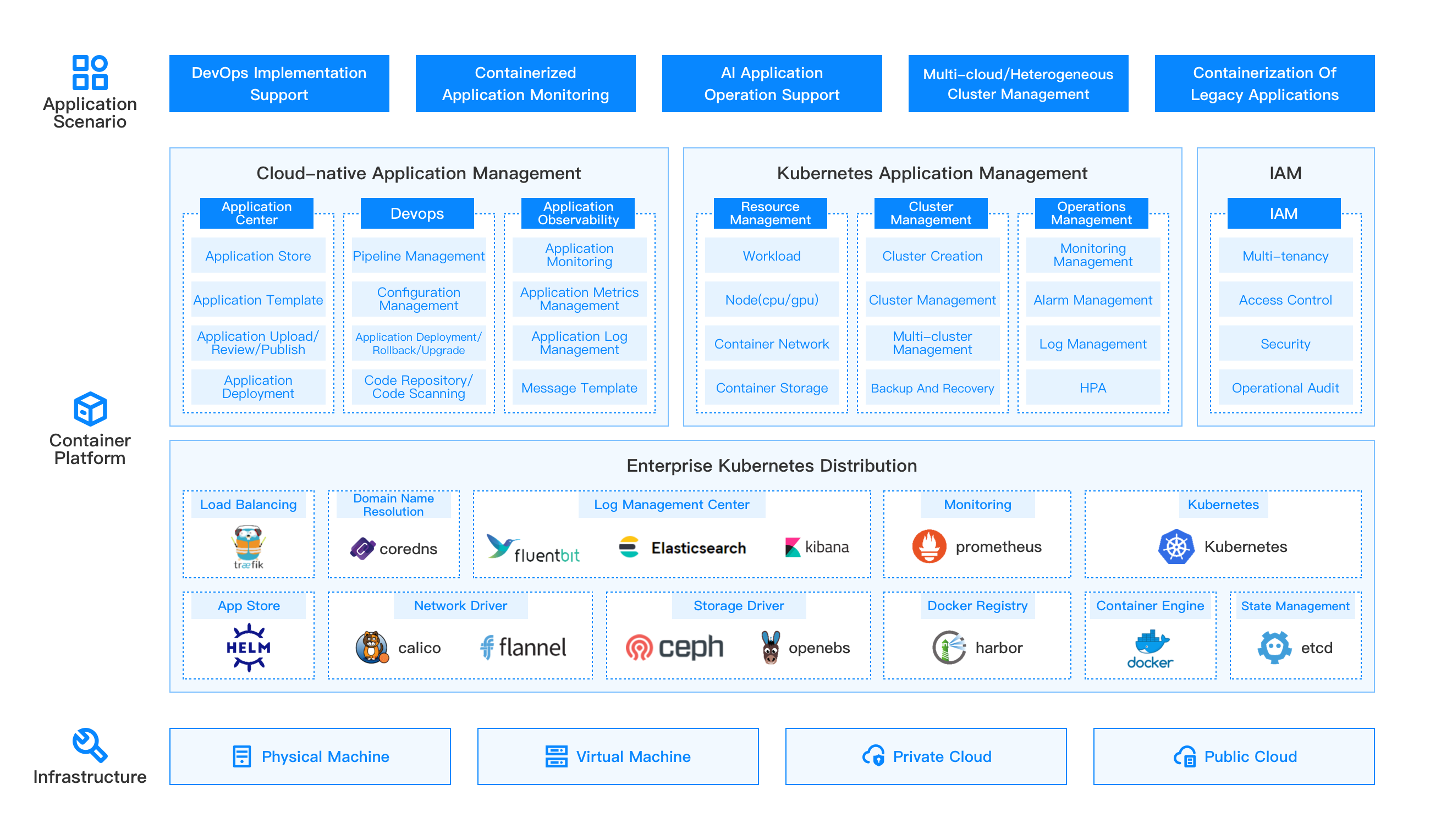Cloud-Native technology is an application development and execution concept based on technologies such as containers, microservices, and cloud computing.
Its primary purpose is to address new challenges in application development and deployment in the era of the Internet, including the continuous expansion of application scale, increasing deployment complexity, and growing demands for reliability and elasticity.

Multi-Cluster Management
The platform adopts a host-member architecture, where a host manages clusters and implements governance, monitoring, and unified scheduling of multiple member clusters, supporting multi-cluster federation management.
Application-Centric
Targeting applications, development, and operations, it covers the entire lifecycle of applications, providing application lifecycle management capabilities such as resource creation, elastic scaling, health monitoring, alert notifications, log analysis, and service governance.
Scalability
Flexible integration with enterprise infrastructure, peripheral systems, and development and operations tools. The platform is extensible and customizable, with modular functionality that can be plugged in as needed.
Flexible Multi-Tenancy Model
Designed with a multi-tenancy model, it achieves data resource isolation between tenants and autonomous management within each tenant. Within a tenant, it allows flexible customization of organizational models based on actual enterprise scenarios. It also provides fine-grained access control permissions to meet high-security requirements for enterprise business data.
Core Features
Cloud-native technologies, represented by containers, have become a part of modern enterprise IT infrastructure.
JKX Container Cloud Platform is based on Docker container technology and leverages Kubernetes' rich container orchestration capabilities to manage and operate the full lifecycle of applications, simplify application deployment, automate operations, and change application delivery models.
Resource Management
Supports visual and rapid creation and governance of Kubernetes clusters, and unified management of Kubernetes resources.
Elastic Scaling
Automatically scale replicas based on actual business usage and configuration policies to save costs.
Image Repository
Optional configuration of image repositories, integrated with Harbor repository, providing a one-stop solution for container cloud.
CI/CD
CI/CD pipeline built on containerized applications, supporting multi-environment process orchestration and one-click application deployment.
Application Store
Enterprise-level application store based on Helm, reducing the complexity of application deployment and maintenance in multi-cloud environments.
Service Mesh
Provides microservice governance capabilities such as service discovery, load balancing, rate limiting, circuit breaking, timeouts, retries, and service tracing.
Monitoring and Alerting
Supports comprehensive monitoring of virtual machines, containers, and applications, custom metric collection, and rich alert notification channels.
Log Retrieval
Centralized management of all logs based on industry-leading search engines, enabling multi-dimensional drill-down analysis.
Security Audit
Multi-tenant resource isolation, fine-grained permission control within tenants, and traceability for all operations, complying with enterprise security and compliance requirements.
Product Architecture
